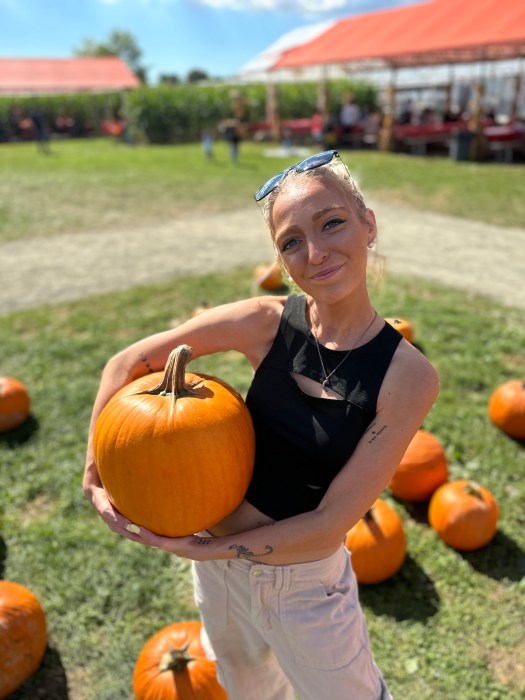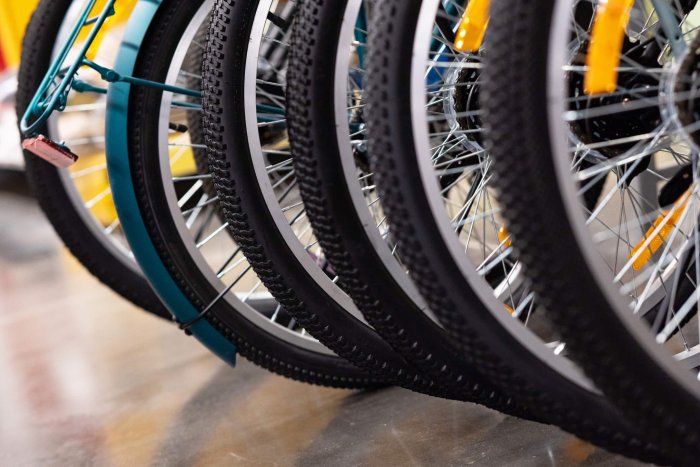Heroin use on Long Island has recently been deemed a growing problem and an important issue for parents and their junior high and high school-aged children. Although the Island Trees School District doesn’t see heroin as a current problem, it wants to nip the topic in the bud before it becomes an issue.
On Thursday Jan. 14, Island Trees High School sponsored an informative session for parents and their teens entitled, “The Heroin Trail: How Heroin Has Reached Long Island.”
A few hundred people attended this event in the auditorium that was introduced by ITHS Principal Nick Grande as a proactive event.
“This is not something we’re seeing on a daily basis here at Island Trees,” Grande said. “We’re being proactive and educating people today.”
The Federal Drug Enforcement Agency’s Special Agent Charlie Bernard delivered a powerful and informative presentation about where heroin comes from, both geographically and organically, how it gets to the U.S. and eventually Long Island, and what it does to people who use it.
Bernard said that prescription drug abuse and heroin use has recently become an issue in Suffolk and Nassau counties as dealers market it to young people.
Dealers stamp recognizable brand names on baggies filled with drugs, Bernard said. Names like, “Obama,” “Band Aid,” “MySpace” and “Twilight” were found on baggies the DEA confiscated, aiming at luring in teens with a name they recognize.
In response to the question, “How is it getting here?” Bernard said, “Every way imaginable.”
The highly addictive, very harmful drug mostly comes to the U.S. from South America although 90 percent of the world’s heroin comes from Afghanistan, Bernard said. It is smuggled here on people’s bodies mostly on planes or through illegal tunnels on the U.S. northern and southern borders created for transporting drugs.
Bernard showed a photo of a few puppies that were going to be the unfortunate middlemen for drug smugglers. The smugglers liquefied the heroin they were going to transport, were going to cut open the dogs, insert the packages of heroin and then re-open the puppies’ bodies to retrieve the drugs once they were where they wanted to go. However, the DEA caught them before this could happen and the little doggies are safe and sound, Bernard said.
When he was working at JFK Airport, Bernard said he saw people using some imaginative and some very stupid methods to smuggle drugs. From strapping it to one’s body to swallowing it or even shaping it into little packs to wear attached to their hair under a hat.
“I love the way they get rid of that stuff,” he said after showing a video of soldiers blowing up a heroin mill in Afghanistan.
Turning to how parents can protect their children from heroin and drugs in general, Bernard said, “Your own medicine cabinet is where the whole problem with prescription drugs starts.”
Bernard quoted Ronald Reagan saying, “Trust but verify.”
“We all love our kids; we all want to believe our kids, he said. But unfortunately Percocet, Vicodin and Oxycontin are in parents’ medicine cabinets and this can be where teenagers’ dive into drugs begins and eventually heroin and other hard drugs become attractive.
“The kids that you drive to soccer practice, to baseball practice, your kids’ friends,” Bernard said. “Somebody’s zipping into the city and bringing it back here and distributing it here.”
Many more people are dying from drug-related deaths than alcohol-related deaths, Bernard said.
“I’m pleading with any kids in this audience, do not get started,” he said.
One teen who didn’t heed similar warnings of people around her is Kristiann, a 17-year-old recovering drug addict who attended the meeting with her mother, Laurie, to inform parents and teens of the dangers of heroin and other drugs, using personal experience as her guide.
Laurie explained that she and her husband were in denial of the extent of Kristiann’s drug use, telling themselves, “She’s just experimenting.”
Kristiann started doing drugs in middle school, Laurie said and at the beginning of high school stopped hanging out with her friends she had known since elementary school and started hanging out with older friends her mother didn’t know.
She lied, her habits changed and she was cutting class all the time, Laurie said. Kristiann didn’t attend class enough in 10th grade to pass the year so she was placed in a PINS (Person in Need of Assistance) program. Even that didn’t work and Kristiann was given a court order to attend school.
Once her parents realized the extent of her drug use, Kristiann was placed in a drug treatment facility called Daytop, located in Huntington Station, where she also attends high school level classes.
“I don’t know where she would be if we didn’t catch her in time, “ Laurie said.
By parents knowing about it, they can prevent it from getting to their child, Laurie said. Unfortunately for their family, Laurie and her husband didn’t know about heroin and its prevalence until their daughter was caught up in it.
Kristiann said she started using pot, and then went to prescription pills, which she was getting from a friend’s parent, and finally moved on to cocaine and heroin.
“You’ve got to be vigilant with your kids. They become very good liars,” Laurie said, when they get into drugs. “Question what they’re doing.”
Kristiann admitted she got in over her head, something she never planned.
“I thought, ‘it’s OK, I’m not going to try heroin or become a drug addict,’” she told herself when she started taking drugs.
She tried Xanax, Vicodin and other prescriptions to get high but found she could not recreate being high and found herself popping eight pills at a time to try to re-live that first high.
“I was out of control. My parents were in denial and didn’t know what to do with me,” Kristiann said. “Ever since I’ve been in treatment I realize I have a problem.”
“I was manipulating my parents and lying. All I cared about was getting high and getting money,” she said.
What parents can do to prevent finding themselves in the same place as Kristiann and her family is simple.
“Communication is the most important thing in a family,” Lauren Shea, a social worker at Daytop said at the event. “Most of the time parents aren’t on the same page.”
“If you say to your kid ‘if you go out Friday night you’ll be punished’ and then when they do it there’s no consequences, the kid knows they can get away with it,” Shea said.
Kristiann has been clean for about four months but it’s not easy, both she and her mother agree.
“We’re struggling every day,” Laurie said. “We take it one day at a time.”































